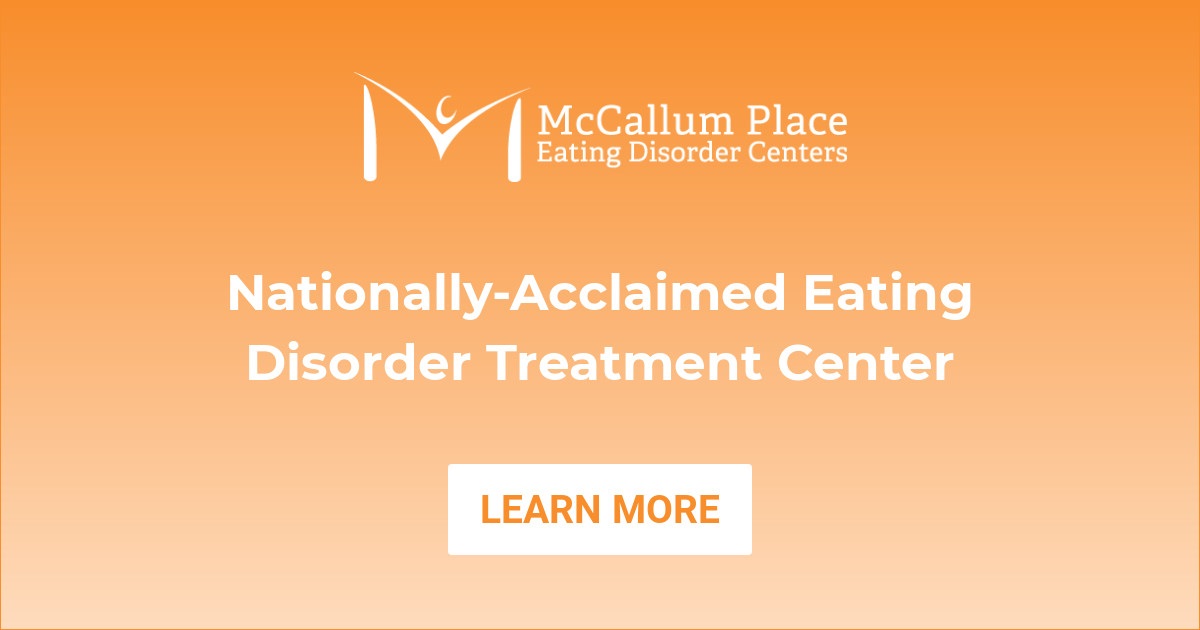- Calls to this hotline are currently being directed to Within Health or Eating Disorder Solutions
- Representatives are standing by 24/7 to help answer your questions
- All calls are confidential and HIPAA compliant
- There is no obligation or cost to call
- Eating Disorder Hope does not receive any commissions or fees dependent upon which provider you select
- Additional treatment providers are located on our directory or samhsa.gov
Adolescents Who Have Eating Disorders Are at High Risk for Developing Co-Occurring Illnesses

Contributor: Staff at McCallum Place
Years of research have shown that adolescents who have an eating disorder are at high risk for developing a co-occurring mental health disorder.
Years of research have shown that it’s not uncommon for adolescents who have an eating disorder to develop other mental health concerns. Left untreated, this can significantly impact their overall well-being.
To evaluate whether the presence of an eating disorder in adolescents is associated with later onset of mental health concerns such as depression, anxiety disorders, and self-harm, researchers surveyed more than 11,000 adolescents ages 14 and 16 in the U.K. and followed up with participants at age 18 [1].
The researchers found that, compared with adolescents who did not have an eating disorder, the adolescents who were struggling with anorexia nervosa, bulimia nervosa, or binge-eating disorder were more likely to develop depression or an anxiety disorder later in life.
Just as a wealth of past research suggests, this study ultimately shows that adolescents who are suffering from an eating disorder are at a higher risk for developing a co-occurring mental health concern.
Call McCallum Place for Help 888-484-9414
Determining Onset
The researchers were careful to point out that this study did not actually show when the participants developed a co-occurring mental health condition, only that onset did occur at some point during the study period [1].
Some mental health conditions share similar symptoms, which can make it difficult to determine if an adolescent is struggling with co-occurring concerns.
Both depression and malnutrition, which can result from an eating disorder, can cause emotional distress, poor concentration, fatigue, and insomnia. And the changes in appetite that can occur with depression may also be related to eating disorder symptoms such as binge eating, purging, and restricting food intake [2].
These overlapping symptoms can hide the presence of a coexisting condition, especially if the symptoms of another disorder are more persistent and severe. Although the goal in treatment is to identify any underlying concerns an adolescent is facing, it can sometimes take reducing the symptoms of one disorder before it is possible to identify a co-occurring concern.
It’s important to recognize that the onset of co-occurring mental health concern can occur at any time, and there is no designated order in which a person may develop a mental illness. For some adolescents, their struggles may begin with a condition such as depression or an anxiety disorder, which can then lead to the onset of a co-occurring eating disorder. Others may develop an eating disorder first, or they may develop two mental health conditions at the same time.
What truly determines onset is personal and is based on different factors in an adolescent’s life. Family history, past trauma, cultural influences, and medical history can all play a role in whether an adolescent is at risk for developing an eating disorder and a co-occurring mental health concern.
Effects on Quality of Life
When an adolescent struggles with a single mental health condition such as an eating disorder, it can keep them from functioning on a daily basis. Add the challenge of a co-occurring concern, and their quality of life can be severely impacted.
For example, compared with people who do not have coexisting conditions, people who suffer from a binge-eating disorder that co-occurs with depression report having lower energy levels, more trouble socializing, and more difficulty performing daily tasks. In fact, multiple studies have shown that people who struggle with an eating disorder that co-occurs with depression, compared with those who only have an eating disorder, have a lower overall quality of life [3].
In the absence of appropriate treatment, this combination can be highly destructive to an adolescent’s future. They may struggle with:
- Concentrating at school or doing their schoolwork
- Trusting people or maintaining positive friendships
- Getting good sleep or feeling exhausted
- Maintaining good nutrition for their body’s needs
- Low self-esteem and persistent body image concerns
- Changes in mood that shift from moment to moment
- Unhealthy weight changes, either loss or gain
- Self-harm or thoughts of suicide
Just as onset is personal, the effects of a mental health disorder are also individual to each adolescent. Not every adolescent who is struggling with an eating disorder that coexists with another mental health concern will suffer the same short- or long-term consequences. But they will share the pain and distress these disorders have inflicted on their lives.
An adolescent who is struggling with co-occurring conditions is not destined to have a poor quality of life. But without treatment, each condition can cause the other to worsen over time. Getting a comprehensive assessment that evaluates for any underlying conditions can be the first step toward a brighter future.
About McCallum Place
McCallum Place is an eating disorder treatment center with locations in St. Louis, Missouri, and Kansas City, Kansas. We provide comprehensive treatment for adolescents and adults and a specialty treatment program for athletes who are living with eating disorders. Our experienced treatment team works closely with each patient to ensure that they play a central role in their recovery process. We offer a full range of services to meet the unique needs of each patient and address all concerns related to the treatment of eating disorders.
References
[1] Micali, N., Solmi, F., Horton, N. J., Crosby, R. D., Eddy, K. T., Calzo, J. P., Sonneville, K. R., Swanson, S. A., & Field, A. E. (2015). Adolescent eating disorders predict psychiatric, high-risk behaviors, and weight outcomes in young adulthood. Journal of the American Academy of Child and Adolescent Psychiatry, 54(8), 652-659. DOI: https://doi.org/10.1016/j.jaac.2015.05.009. [2] Uniacke, B., & Broft, A. (2016). The interplay of mood disorders and eating disorders. The Psychiatric Times. 33, 5. Retrieved from https://www.psychiatrictimes.com/view/interplay-mood-disorders-and-eating-disorders. [3] Singleton, C., Kenny, T. E., Hallett, D., & Carter, J. C. (2019). Depression partially mediates the association between binge eating disorder and health-related quality of life. Frontiers in Psychology, 10, 209. DOI: https://doi.org/10.3389/fpsyg.2019.00209.About The Sponsor
McCallum Place
The opinions and views of our guest contributors are shared to provide a broad perspective of eating disorders. These are not necessarily the views of Eating Disorder Hope, but an effort to offer a discussion of various issues by different concerned individuals.
We at Eating Disorder Hope understand that eating disorders result from a combination of environmental and genetic factors. If you or a loved one are suffering from an eating disorder, please know that there is hope for you, and seek immediate professional help.
Published on April 24, 2021. Published on EatingDisorderHope.com
Reviewed & Approved on April 24, 2021, by Jacquelyn Ekern, MS, LPC


